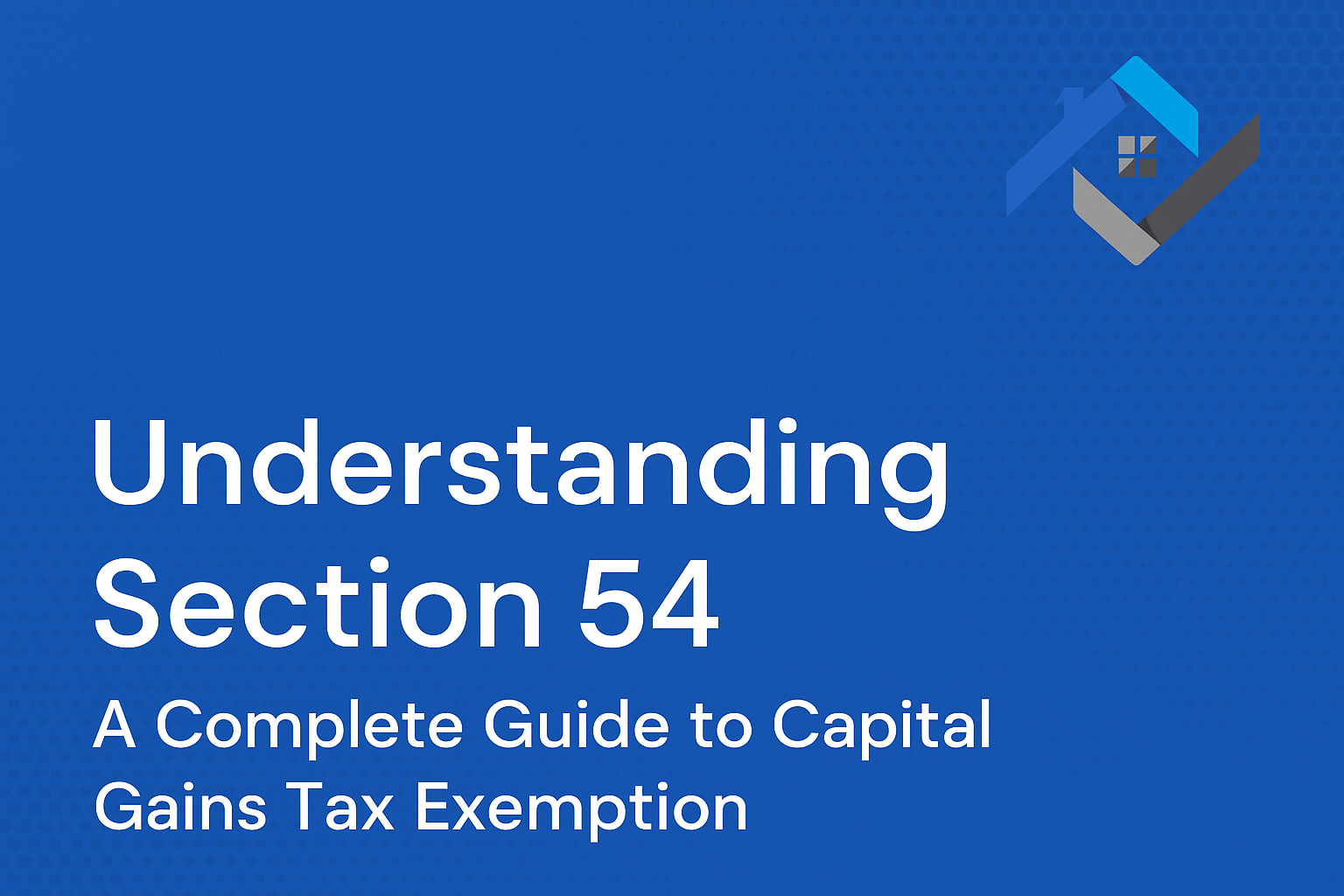
When it comes to buying or selling property in India, one of the most common questions every homeowner or investor faces is — “How can I save tax on capital gains?”
The answer lies in Section 54 of the Income Tax Act, which provides a valuable Capital Gains Tax Exemption when you reinvest the proceeds from the sale of your property into a new residential home.
At Magic Ghar, where we design and develop some of the most luxurious villa projects in Noida Extension, we often guide homebuyers about how to make smart financial decisions — and understanding Section 54 is one of them.
Let’s simplify this topic and break it down into practical terms.
What is Capital Gains Tax?
When you sell a property (like a house, plot, or apartment) and earn a profit, that profit is called capital gain.
The tax you pay on that gain is called Capital Gains Tax.
There are two types of capital gains:
- Short-Term Capital Gains (STCG):
If you sell your property within 24 months of purchase, it’s short-term.
The gain is added to your total income and taxed as per your income slab. - Long-Term Capital Gains (LTCG):
If you sell your property after holding it for more than 24 months, it’s long-term.
The LTCG tax rate is 20% after applying indexation benefits.
But here’s the good news — you can save or completely avoid LTCG tax under Section 54, if you reinvest wisely!
What is Section 54 of the Income Tax Act?
Section 54 provides tax exemption on long-term capital gains when the proceeds from the sale of a residential property are used to purchase or construct another residential property in India.
In short, it helps you defer or save tax on the profit earned from selling your home — as long as you reinvest it in another house.
Key Conditions for Claiming Section 54 Exemption
To claim this tax benefit, you must meet the following conditions:
- Type of Property Sold:
The property you sell must be a long-term capital asset — i.e., held for more than 24 months before selling. - Type of New Property:
The reinvestment must be in one residential house in India.
(From AY 2020-21 onwards, the exemption can be claimed for two houses, but only if your capital gain is up to ₹2 crore.) - Time Limit for Investment:
- Purchase: Within 1 year before or 2 years after the sale of the old property.
- Construction: Within 3 years after the date of sale.
- Usage:
The new property must be purchased or constructed in your name and not sold within 3 years, otherwise the exemption is reversed.
Example: How Section 54 Works
Let’s say Mr. Sharma sold his old house for ₹1 crore.
The indexed cost of purchase is ₹60 lakh, so his long-term capital gain = ₹40 lakh.
If he buys a new villa worth ₹40 lakh (or more) within 2 years in India,
then under Section 54, he can claim full exemption on the capital gains tax.
If he invests only ₹20 lakh, then the exemption is proportionate — only on that part.
How Section 54 Benefits Homebuyers
For those planning to upgrade or reinvest in a premium property — like a luxury villa project in Noida Extension — Section 54 is a smart financial tool.
It allows you to convert your profits into a better living experience while legally saving tax.
So instead of losing a big chunk of your earnings to taxes, you can channel it into buying your dream home with Magic Ghar, known for crafting exclusive villas that combine modern design, comfort, and high investment value.
Section 54 vs Section 54F – Know the Difference
| Particulars | Section 54 | Section 54F |
| Applicable on | Sale of a residential property | Sale of any long-term asset other than a house |
| Reinvestment in | 1 residential property in India | 1 residential property in India |
| Exemption limit | Only to the extent of capital gain | Proportionate to reinvestment |
| Time limit | Purchase: 1 year before / 2 years after; Construction: 3 years after | Same as Section 54 |
Understanding this difference ensures you choose the right section for maximum tax savings.
What if You Can’t Reinvest Immediately?
If you haven’t yet purchased or constructed a new property before filing your income tax return, don’t worry!
You can deposit the capital gains in a Capital Gains Account Scheme (CGAS) at any authorized bank before the due date for filing your ITR.
This ensures that you can still claim the exemption once you invest in a new home later.
When is Section 54 Exemption Withdrawn?
The exemption will be revoked if:
- The new property is sold within 3 years of purchase/construction.
- You don’t utilize the deposited funds in the Capital Gains Account within the specified period.
In such cases, the amount becomes taxable in the year of violation.
Why Noida Extension is the Smart Choice for Reinvestment
If you’re selling an old property and planning to reinvest in a new one, Noida Extension (Greater Noida West) is one of the most promising locations in the Delhi-NCR region.
Here’s why:
- Rapid infrastructure development
- Excellent connectivity via metro and expressways
- Green surroundings with premium gated communities
- High appreciation potential and low entry price compared to central Noida
Our Villa Project in Noida Extension at Magic Ghar offers everything a modern homeowner desires — spacious layouts, private gardens, designer interiors, and a serene neighborhood.
By reinvesting your capital gains here, you’re not just saving taxes — you’re investing in a luxurious and future-ready lifestyle.
Final Thoughts
Understanding Capital Gains Tax Exemption under Section 54 helps you make smarter real estate and financial decisions.
Whether you’re upgrading to a bigger home, relocating, or diversifying investments, this exemption ensures your hard-earned gains are utilized in the best way possible.
At Magic Ghar, we go beyond just building homes — we help our clients plan their real estate journey efficiently.
If you’re planning to reinvest your gains into a luxury home, explore our Villa Project in Noida Extension and experience how tax savings and premium living can go hand in hand.







No comment yet, add your voice below!